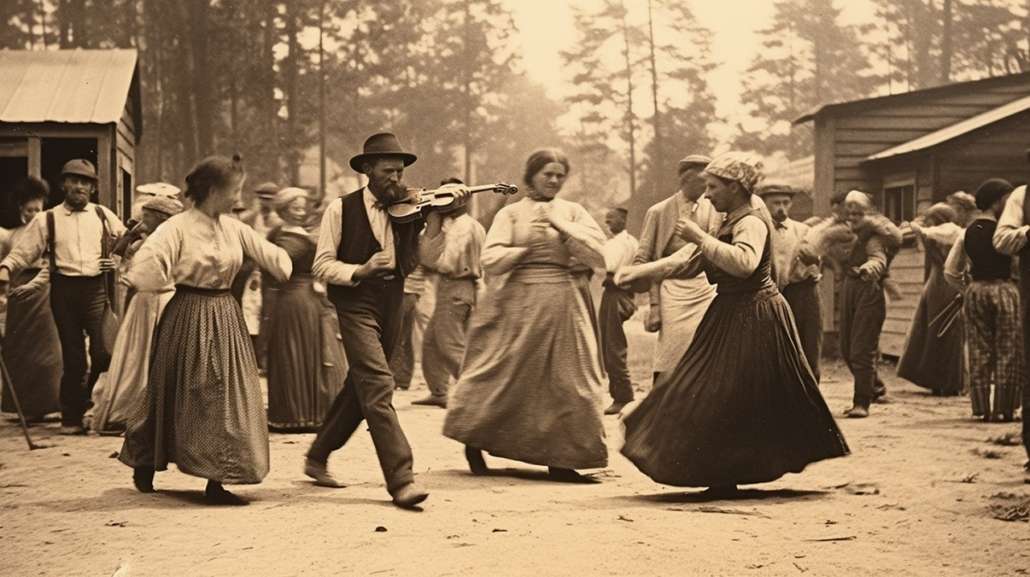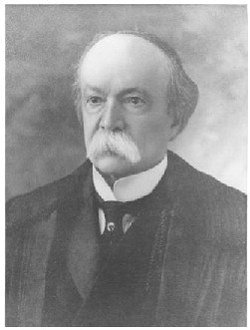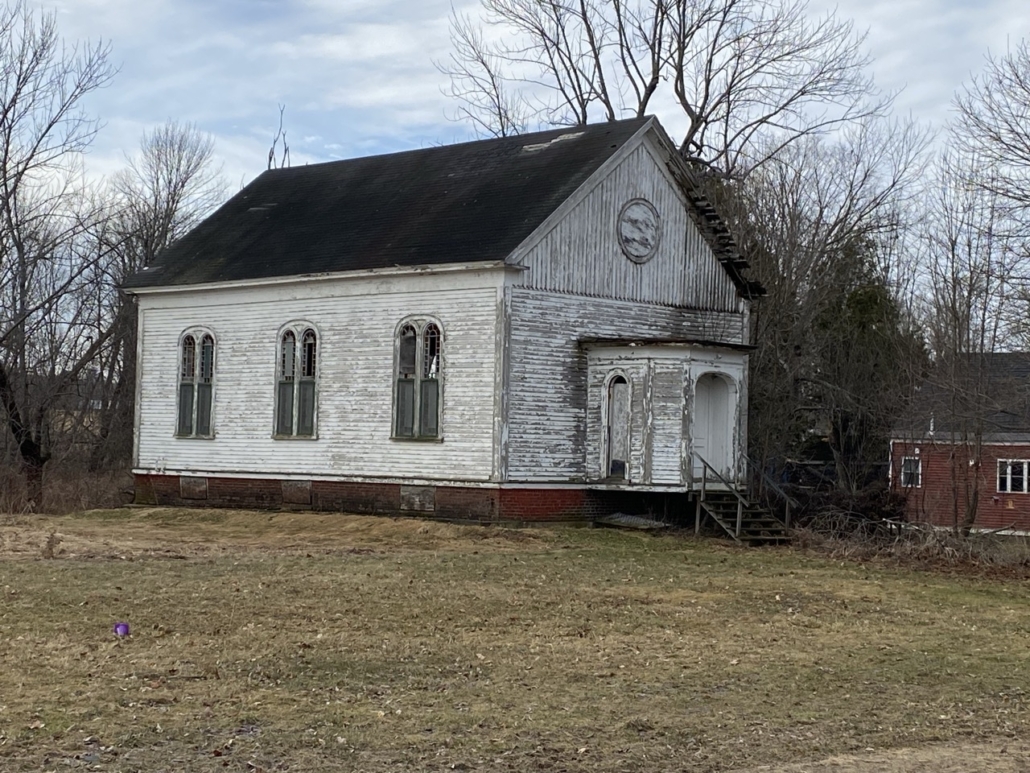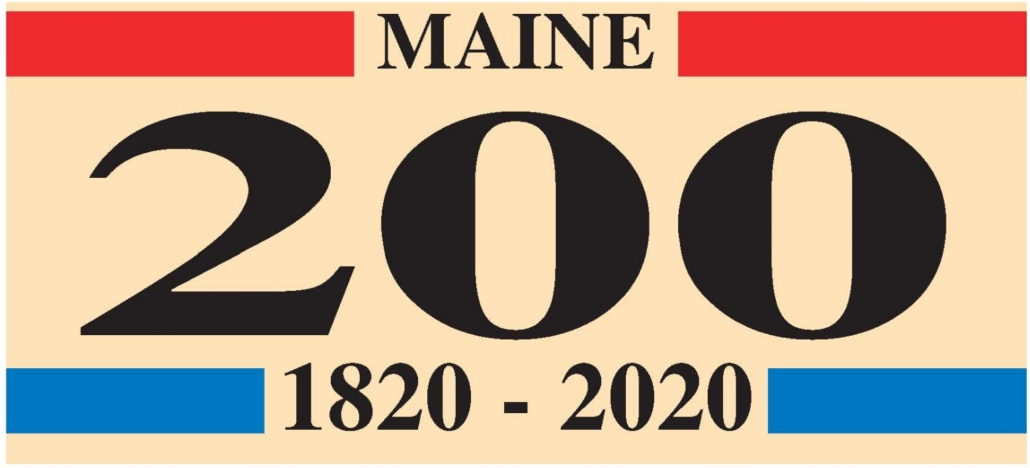Up and down the Kennebec Valley: Music in the Kennebec Valley – Part 2
by Mary Grow
Composers, dancing
In his Music and Musicians of Maine, George Thornton Edwards’ list of “principal musical centers in Maine” in the late 18th and early 19th centuries included the Augusta-Hallowell-Gardiner complex, China and “some of the towns in the Kennebec Valley,” in addition to Portland and other, mostly coastal or more southern, towns.
One name frequently mentioned in Maine music histories is composer and hymnologist Japheth Coombs Washburn (Jan. 20, 1780 – Aug. 22 or Aug. 29, 1850), of China Village.
The China bicentennial history says he came to China with his father in 1804, when the north part of the town was still Albion (then Fairfax).
In 1804, Washburn opened the first store in what is now China Village; he opened the first tavern there about 1812. It was he, as a member of the Massachusetts legislature in early 1818, who chose the name “China” – the title of a hymn he liked — for the new town, after “Bloomville” was opposed by the representative from Bloomfield (now part of Skowhegan) as likely to cause misdelivered mail.
When China Village got its first post office in June 1818, it was in Washburn’s store, and he was the first postmaster. He was the first town clerk, serving from 1818 through 1821 and again from 1830 through 1836.
Linda Davenport wrote in her 1996 book Divine Song on the Northeast Frontier that Washburn was a justice of the peace early in the 19th century. He published the town’s first weekly newspaper, the Orb, from Dec. 5, 1833, through November 1836. After China Academy was founded in 1818, Washburn was a member of its second board of trustees starting in 1819.
Washburn married twice, fathered 10 children and founded a family famous for public service in China. Being town clerk was a specialty. Japheth’s oldest son, Oliver Wendell Washburn (Oct. 17, 1804 – Sept. 18, 1885), was clerk from 1840 through 1850; his oldest son, Willis Wendell (March 18, 1856 – June 22, 1942), from 1872 through 1877 and from 1888 until his death. Willis Wendell was succeeded in July 1842 by the youngest of his six children, Mary Alida Washburn ((July 25, 1893 – July 5, 1971), who served through 1970.
The China bicentennial history says nothing about Washburn and music. But Frances Turgeon Wiggin, in her Maine Composers and Their Music, credited him with two collections of hymns and similar music: Parish Harmony, published in 1813, and Temple Harmony, published in 1818. Davenport added collaboration with an older Maine composer, Abraham Maxim (Jan. 3, 1773 – March 28, 1829) of Turner, on the 1816 edition of Maxim’s collection, titled Northern Harmony.
Edwards provided a longer title for Washburn’s 1813 collection: The Parish Harmony or Fairfax Collection of Sacred Music. It was printed in Exeter, New Hampshire, he said, and described (he appeared to be quoting from the introduction) as including “a concise introduction to the grounds of music” and numerous “tunes” suitable for worship services.
Temple Harmony, Edwards wrote, was co-published by Washburn and Hallowell publisher E. Goodale.
Davenport’s book includes a 14-page chapter on Maxim and a 24-page chapter on Washburn’s life and music. She described Washburn as a composer of dozens of pieces of sacred music, as well as a compiler of other people’s music.
* * * * * *
Wiggin listed one other 19th-century composer from the central Kennebec Valley, Emily Peace Meader (Feb. 5, 1858 – Sept. 4, 1914). Known as Peace to some of her friends, she was a Waterville native and the only female graduate in Colby College’s Class of 1878.
Her parents were Edward Gove Meader, originally from New Hampshire, and Helen A. (Smith) Meader, of Anson or North Anson, Maine. She had an older and a young brother and a younger sister. There is no record that she married.
Nor are there many records, period. The closest to an account of her role in music history is a few lines in Wiggin’s Maine Composers.
Wiggin described her as a pianist and an accompanist who studied with organist, choir director and composer Homer Norris (Oct. 4, 1860 – Aug. 14, 1920), born in Wayne. Norris, in turn, Wiggin called “One of our earliest composers of importance to follow the French school of music.”
Wiggin included titles of three of Meader’s songs, from a collection published in 1918, and noted that “Miss Meader wrote her own texts.”
Meader was a cousin of Elizabeth Gorham Hoag, one of the four Colby women who founded Sigma Kappa sorority, and was in the sorority’s first group of initiates on Feb. 17, 1875. Wikipedia says Meader composed most of the original music used during the ceremony. A Colby presentation found on line gives her two short paragraphs, including a note that the college has “copies of her sheet music.”
Edwin Whittemore’s Waterville centennial history mentions Meader once, in a list of businessman Edward Meader’s four children; it says nothing about her as a musician. Edwards named her among lesser Maine composers in his chapter on the period between 1857 and 1896.
Edwards included in a list of post-Civil War composers Nathaniel Butler, of Waterville, born in 1824. Whittemore’s history introduces two men of that name, father and son. Franklin W. Johnson’s chapter on Waterville Academy says the senior Nathaniel Butler was that school’s principal for one year, starting in late 1842. Various sources say the junior, son of Rev. Nathaniel and Jeanne Emery Butler, was born in Eastport in May 1853 and was president of Colby College from 1895 to June 1901.
Given the 1824 birth date, the Waterville composer must have been the Rev. Butler, if he was either of these two men. Could he have been Waterville Academy principal in 1842? Conceivably; other educated 18-year-olds assumed similar responsibilities.
Was he the Rev. Nathaniel Butler from Eastport who was a member of the Yarmouth Baptist Church sometime before 1855? Who came from Camden to fill in at the Baptist Church in Ellsworth in December 1866 and January 1867? Who was chaplain of the Maine Senate in 1881-82?
The relevant point for this essay is that none of the references providing these possibilities say anything about their Nathaniel Butler having musical ability or interest.
Edwards also wrote that Maine composer George W. Marston (May 23, 1840 – Feb. 2, 1901), who spent much of his life in Portland where he composed songs and taught “piano, organ and harmony,” “taught piano and played the organ at the First Baptist Church” in Waterville for a year right after he finished high school.
The China bicentennial history adds one more minor association between music and education (otherwise, the book says nothing of significance about music). In 1872, the history says, students at China Academy, in China Village, could sign up for 20 music lessons for $10. For comparison, the fee for “common English” for the 10-week term was $3.50, for “higher English” $4.50 and for “languages or bookkeeping” $5.50.
* * * * * *
Several local histories include references to dancing, which implies music. James North, in his history of Augusta, gave an example from 1788.
That was the year surveyor Ephraim Ballard rebuilt his sawmill on Bond’s Brook that had burned in August 1787. The mill-raising was July 7; after the day’s work, North wrote, “the young folks…had a dance” at Ballard’s that lasted until midnight.
Years later, in 1838, North described resolutions approved by Augusta’s conservative East Parish Unitarians “on the subject of ‘public balls and the amusement of dancing,’ in which the inconsistency of professing Christians in attending the former was declared and their duty to refrain from the latter asserted.”
Not all church members complied, North said. In 1840, a committee reiterated the resolutions; after discussion, church members endorsed them on a 25-1 vote and had them printed and distributed in February. Disobedience continued, leading to arguments about the church’s right to discipline its members and in the summer of 1840 the withdrawal of “the offending members.”
In his chapter of recollections from the 1820s through 1850s in Whittemore’s Waterville history, William Mathews mentioned a “dancing-hall” in one of the town’s three hotels. There and elsewhere in town, “Tea parties, dance parties, and balls were frequent,” he wrote.
In the same history, novelist Martha Baker Dunn contributed a chapter on social life in Waterville. She, too, talked about dancing parties, in private homes and public spaces.
In his history of Windsor, Linwood Lowden named common 19th-century social activities. Some were work-related, like husking bees and sewing bees. He also listed horse trots, turkey shoots, croquet parties, community picnics and Sunday afternoon rides in a horse-drawn buggy.
“Community dances were especially popular. These were held in barns, in mills, in halls, and in private homes,” Lowden wrote.
A dance was a common finale to a community event like “an all day picnic,” he added. His discussion was without dates, but the context suggests he was talking about the second half of the 19th century.
And remember teen-ager Orren Choate, who celebrated Independence Day in 1885 by going from his Windsor home to a dance in Weeks Mills and didn’t get home until midnight (see the June 29 issue of The Town Line)?
It seems to have been Choate’s diary that gave Lowden his description of the Grand Army of the Republic’s fair at the end of September 1885. Events included a Wednesday performance by the Hallowell Cornet Band and a Friday evening dance.
On Christmas Day, 1885, young Choate decided against going to a dance in South Windsor because the weather was too cold. Lowden added that the dance “would have been held in Wingate Hall – now [1993] Shirley Varney’s apartments.”
What kind(s) of dance music and whether it was provided by a solitary fiddler or half a dozen people playing varied instruments – local historians provided only occasional sketchy information.
For example, Mathews wrote that summer vacations were not common in the1820s and 1830s, but occasionally a group of Waterville residents would go by boat to the mouth of the Kennebec for a week’s recreation. “Usually they took a fiddler with them,” he wrote, to accompany them in whatever dance was popular at the time.
Lowden described an expedition from Windsor in July 1886, quoting from Choate’s dairy. On Wednesday, July 28, Choate and three friends made a 40-mile, 12-hour journey to Pemaquid (Pemequid, in Choate’s spelling) Point. They stayed until the following Monday morning, hunting, fishing, lobstering and collecting shells; and on Saturday Choate wrote, “There is going to be a dance near our tent tonight.”
Several smaller towns had dance pavilions. Milton E. Dowe’s history of Palermo locates a 19th-century one in the field behind the present Branch Mills Grange Hall; he wrote that “it was demolished about 1900.”
The China bicentennial history says there were three in South China, one probably open in the 1890s and two more early in the 1900s.
Main sources
Davenport, Linda, Divine Song on the Northeast Frontier Maine’s Sacred Tunebooks, 1800-1830 (1996).
Dowe, Milton E., History Town of Palermo Incorporated 1884 (1954).
Edwards, George Thornton, Music and musicians of Maine: being a history of the progress of music in the territory which has come to be known as the State of Maine, from 1604 to 1928 (1970 reprint).
Grow, Mary M., China Maine Bicentennial History including 1984 revisions (1984).
Lowden, Linwood H., good Land & fine Contrey but Poor roads a history of Windsor, Maine (1993).
North, James W., The History of Augusta (1870).
Whittemore, Rev. Edwin Carey, Centennial History of Waterville 1802-1902 (1902)
Wiggin, Frances Turgeon, Maine Composers and Their Music (1959).
Websites, miscellaneous.
Responsible journalism is hard work!
It is also expensive!
If you enjoy reading The Town Line and the good news we bring you each week, would you consider a donation to help us continue the work we’re doing?
The Town Line is a 501(c)(3) nonprofit private foundation, and all donations are tax deductible under the Internal Revenue Service code.
To help, please visit our online donation page or mail a check payable to The Town Line, PO Box 89, South China, ME 04358. Your contribution is appreciated!






Leave a Reply
Want to join the discussion?Feel free to contribute!